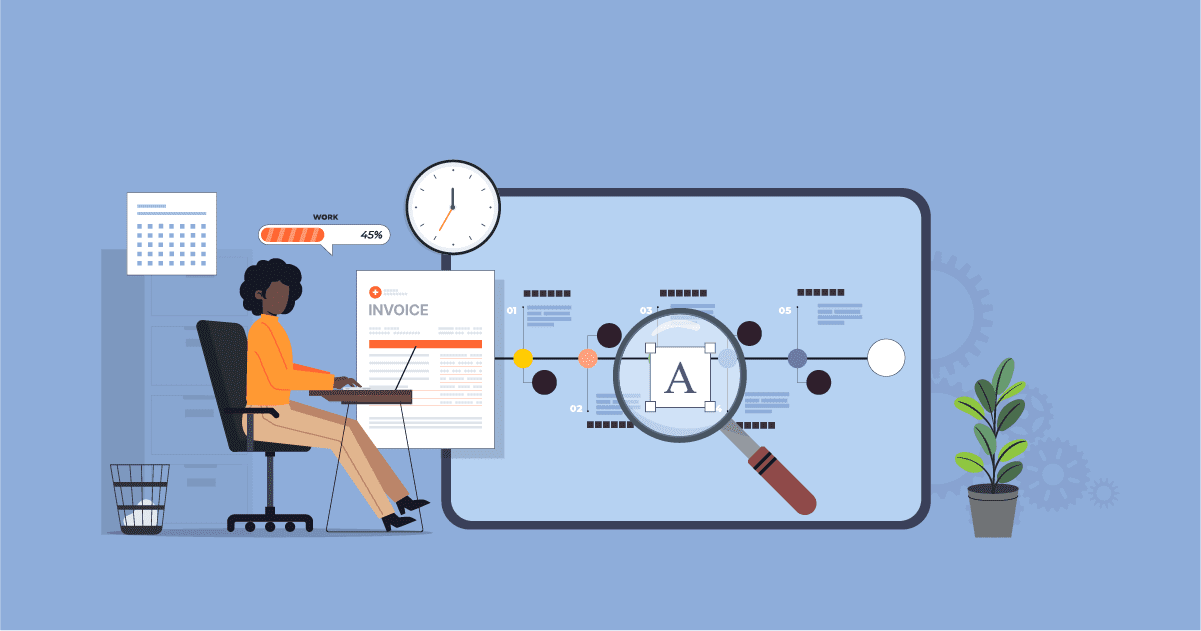Enterprises today manage a staggering volume of financial transactions across global supply chains, vendor networks, and internal departments. Handling these invoices manually is not just inefficient; it creates bottlenecks, compliance risks, and financial blind spots. That’s why modern organizations are increasingly adopting an invoice processing platform that seamlessly integrates with Enterprise Resource Planning (ERP) systems.
This integration bridges the gap between raw invoice data and enterprise-wide financial intelligence, ensuring accuracy, scalability, and speed.
What is an Invoice Processing Platform?
An invoice processing platform is software engineered to automate the receipt, capture, validation, approval, and payment of invoices. Powered by OCR, AI, and machine learning, it digitizes invoices and maps extracted data directly into ERP systems like SAP, Oracle NetSuite, or Microsoft Dynamics.
This type of platform supports end-to-end automation, from vendor onboarding to compliance checks, ensuring seamless workflows and data integrity.
Public sector investments highlight the growing demand for automation. For example, the U.S. government allocated $100 million in 2023 for AI research, with a portion aimed at finance automation, while the Australian government set aside A$5.4 million to integrate AI into invoice processing within procurement. These moves underscore how automation is becoming critical in both private and public finance systems
Why Integration with ERP Matters?
Enterprise ERP systems are the financial backbone of global businesses. Without integration, invoice processing becomes siloed, forcing finance teams to reconcile data manually. This creates inefficiencies and introduces risks.
Seamless ERP integration ensures that:
- Invoice data flows automatically into accounts payable workflows.
- Vendor information and purchase orders sync in real-time.
- Payment approvals follow consistent, system-wide rules.
- Compliance audits become easier with a centralized digital trail.
In short, the ERP becomes the single source of truth, supported by the automation power of the invoice processing platform.
The Role of AI in ERP Ecosystems
Artificial Intelligence is no longer a “nice-to-have” in enterprise finance, it’s becoming the backbone of how invoice processing platforms integrate with ERP systems. By enhancing automation with intelligence, AI ensures invoices are not only processed but also understood, validated, and optimized for business outcomes.
Key ways AI strengthens ERP ecosystems include:
- Automated Exception Handling: AI learns from historical corrections, enabling ERP systems to resolve anomalies (like mismatched totals or duplicate invoices) with minimal human input.
- Predictive Analytics: Instead of reacting to invoices, AI forecasts cash flow needs, highlights potential liquidity gaps, and surfaces vendor risks before they escalate.
- Fraud Detection: Machine learning models identify suspicious patterns—such as repeated vendor IDs or abnormal invoice amounts—that traditional OCR or manual checks often miss.
- Smart Field Mapping: AI adapts to diverse invoice layouts without requiring templates, ensuring scalability across thousands of vendors.
- Generative AI for Narratives: Automatically generates invoice commentary, variance explanations, and executive dashboards within ERP modules.
- Global Compliance Readiness: AI-driven rule engines help enterprises align with region-specific e-invoicing mandates (e.g., GST in India, PEPPOL in the EU, or LATAM compliance frameworks).
By embedding AI within ERP ecosystems, enterprises shift from transactional processing to strategic financial intelligence, turning AP automation into a driver of agility, compliance, and competitive advantage.
Core Benefits of ERP-Integrated Invoice Processing
When enterprises embed an invoice processing platform directly into their ERP ecosystem, the result is a more connected, accurate, and scalable financial operation. Key benefits include:
- End-to-End Automation: Invoices move seamlessly from receipt to payment without manual intervention.
- Improved Accuracy: AI-driven validation reduces mismatches between invoices, purchase orders, and vendor records.
- Faster Cycle Times: Approval workflows are streamlined, cutting processing time from weeks to hours.
- Cost Savings: Enterprises can reduce accounts payable (AP) costs by up to 70% compared to manual processes.
- Scalability: Easily handles thousands of invoices each month without adding staff.
- Compliance Readiness: Built-in audit trails ensure tax and regulatory compliance across regions.
- Enhanced Vendor Relationships: Timely, error-free payments foster stronger supplier trust and better negotiation opportunities.
By linking invoice automation with ERP systems, finance teams gain not only operational efficiency but also the strategic agility needed to manage growth and compliance in a fast-changing environment.
Real-World Applications
- Global Retail Chains: Automating supplier invoices across regions with direct SAP integration to handle seasonal spikes.
- Manufacturers: Using platforms that match complex, multi-line invoices with ERP purchase orders to avoid production delays.
- Healthcare Systems: Ensuring compliance by integrating invoice capture with ERP modules for medical supplier payments.
- Financial Institutions: Creating audit-ready invoice trails while connecting invoice processing with ERP-based risk management modules.
- Logistics & Supply Chain Firms: Reducing customs clearance delays by integrating invoice capture with ERP freight management systems.
Final Words
As enterprises expand and financial operations grow more complex, relying on manual workflows or standalone OCR is no longer enough. An integrated invoice processing platform within ERP ecosystems delivers the speed, accuracy, and compliance today’s businesses demand.
With AI driving automation deeper into finance, organizations are moving from simple transaction handling to strategic financial intelligence, cutting costs, improving vendor relationships, and ensuring global compliance.
Those who invest early in ERP-integrated invoice automation will not only eliminate inefficiencies but also position themselves for long-term resilience and growth in an increasingly digital economy.























